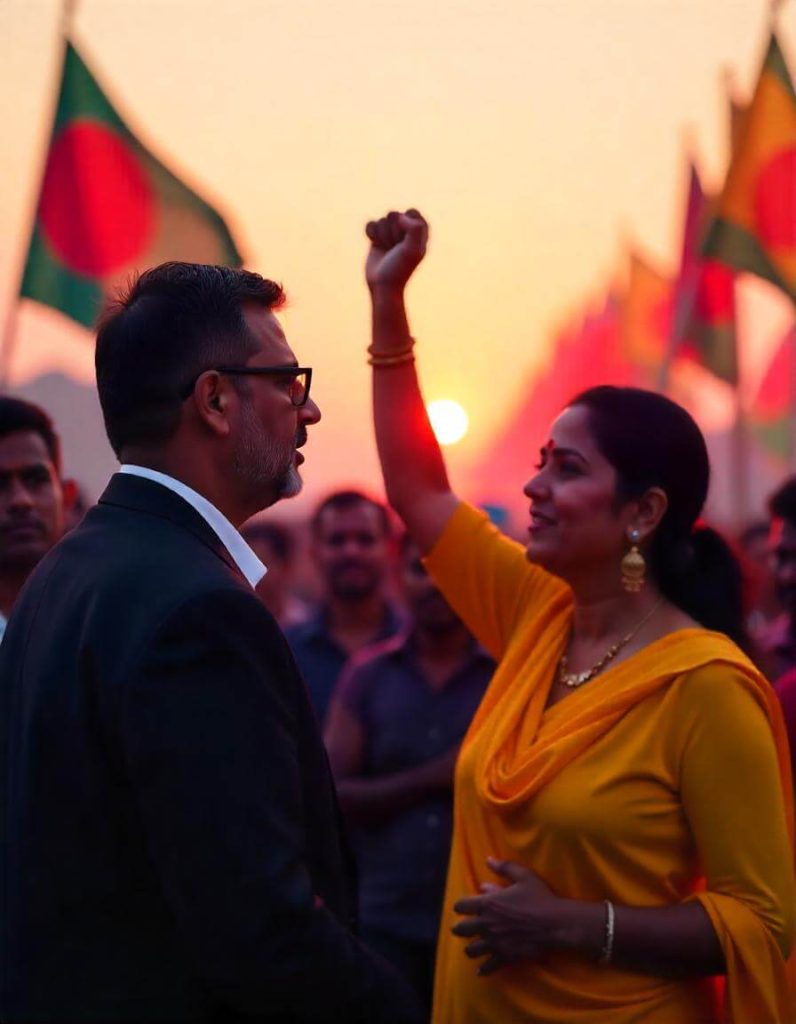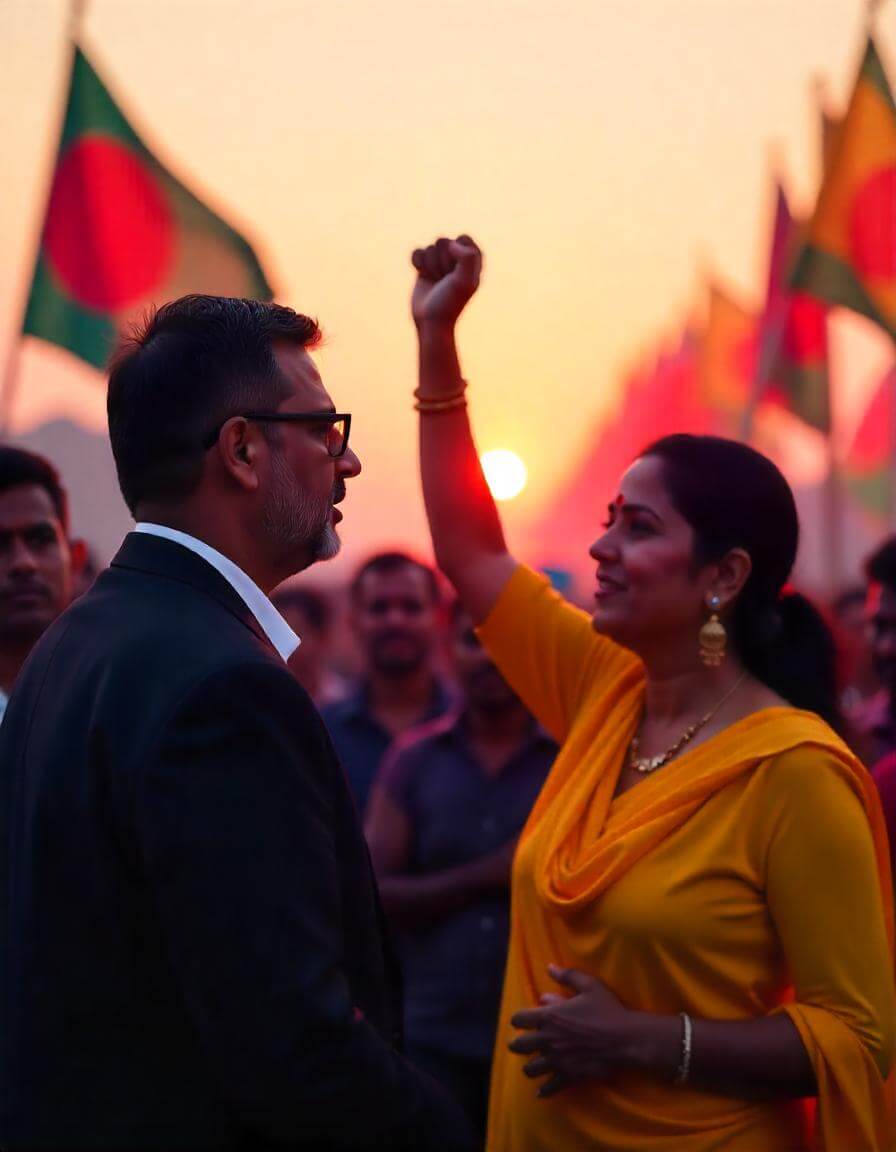Bangladesh, a rapidly developing economy in South Asia and a politically vibrant nation, has declared its intention to hold the next general elections in late 2025 or early 2026. This development signifies a crucial turning point in the nation’s democratic progression as the administration, opposition parties, and voters brace for a potentially decisive electoral event. Historically, elections in Bangladesh have significantly influenced the nation’s domestic policies, economic initiatives, and international relations. The declaration has garnered considerable attention from both domestic and foreign observers, given that political turmoil frequently characterizes the country’s electoral process.
The Political Terrain in Bangladesh
Bangladesh operates as a parliamentary democracy, with the Prime Minister serving as the head of government and the President assuming a predominantly ceremonial position. The principal political entities in the nation are the Awami League (AL), headed by Prime Minister Sheikh Hasina, and the Bangladesh Nationalist Party (BNP), historically led by former Prime Minister Khaleda Zia. The two parties have alternated in governance for decades, and their rivalry frequently characterizes the political dynamics of Bangladesh.
The Awami League, in power since 2009, has initiated numerous significant infrastructure projects, enhanced the national economy, and fortified its global standing. Under Prime Minister Sheikh Hasina’s leadership, Bangladesh has experienced accelerated economic expansion, especially in the garment sector, and has made substantial advancements in poverty alleviation. Critics contend that Hasina’s administration is characterized by increasing accusations of authoritarianism, repression of opposition, and electoral misconduct.
The Bangladesh Nationalist Party (BNP) has faced difficulties in recent years owing to leadership issues, internal discord, and its declining influence in Bangladesh’s political landscape. With Khaleda Zia predominantly marginalized owing to health issues and legal challenges, the BNP confronts a formidable challenge in mobilizing public support. Nonetheless, the opposition maintains optimism that the forthcoming elections will present a chance to contest the ruling party and restore its dominance.
Chronology and Consequences of the Approaching Elections
The scheduling of the elections until late 2025 or early 2026 enables the ruling Awami League to solidify its accomplishments while tackling significant obstacles, notably economic issues, escalating inflation, and increasing opposition dissatisfaction. Bangladesh’s five-year electoral cycle requires general elections to establish the makeup of the Jatiya Sangsad (National Parliament). The government’s decision to prolong the schedule into early 2026, following the latest elections in December 2018, seems calculated.
Economic Recovery: Bangladesh, akin to numerous nations, encountered economic disturbances as a result of the COVID-19 epidemic and ensuing global supply chain issues. The administration intends to defer elections until late 2025 or early 2026 to stabilize the economy, mitigate inflation, and attain essential economic objectives, including enhancing foreign investments and improving employment rates.
International Relations: Bangladesh has gained significance in South Asia’s geopolitics, establishing robust connections with nations such as India, China, and the United States. Conducting elections amid economic stability could enhance Bangladesh’s global reputation as a viable and advancing democracy.
Political Strategy: The prolonged schedule may enable the incumbent party to mitigate political unrest, execute reforms, and respond to critiques from opposition factions, civil society, and international observers concerning electoral transparency and equity.

Imminent Challenges
The declaration of the elections has prepared the ground for a significant political event, however other challenges remain:
Electoral Credibility: Recent elections in Bangladesh have been marred by allegations of electoral fraud, voter coercion, and insufficient transparency. Guaranteeing free, fair, and credible elections is essential for preserving the credibility of the democratic process and the stability of the nation.
Political Polarization: The entrenched antagonism between the Awami League and the BNP frequently results in violent confrontations, strikes, and disturbances. All political stakeholders face the challenge of engaging in productive conversation to guarantee a peaceful voting process.
The primary concern is whether the opposition BNP will engage in the polls. The BNP abstained from the 2014 elections and alleged governmental manipulation of the 2018 votes. The absence of their involvement jeopardizes the democratic legitimacy of the elections.
Public Sentiment: Escalating living expenses, unemployment, and governance challenges may influence voter attitudes. Although the government emphasizes its accomplishments, including infrastructural advancement and poverty reduction, tackling these matters will be essential for gaining public trust.
The Function of Global Monitors and Civic Organizations
International observers, such as the United Nations and the European Union, are expected to be essential in overseeing the electoral process. Ensuring openness and equity will be essential, particularly in light of previous charges of electoral irregularities. Civil society organizations and the media will significantly contribute to voter education, process documentation, and the accountability of political parties.
Conclusion: A Pivotal Moment for Bangladesh
The forthcoming elections in late 2025 or early 2026 will be a pivotal time for Bangladesh’s democracy. The elections give the Awami League with a chance to prolong its governance by highlighting its developmental accomplishments. The elections present an opportunity for the opposition BNP and other political entities to contest the status quo and reestablish equilibrium within the nation’s political framework.
As the world community increasingly regards Bangladesh as a paradigm of economic advancement and political fortitude, the conduct and results of these elections will possess significant ramifications. By guaranteeing a transparent, peaceful, and inclusive electoral process, Bangladesh can reinforce its position as a strong democracy and a significant actor in South Asia’s political and economic arena.
If you are interested for more: Bangladesh intends to conduct elections in late 2025 or early 2026. Gus Atkinson and Brydon Carse are currently the principal figures in England’s bowling assault

